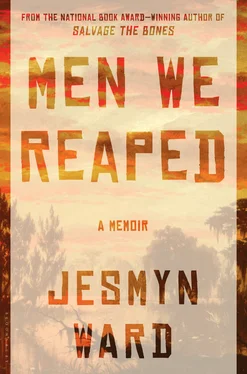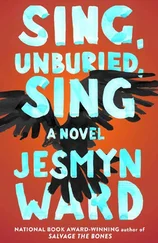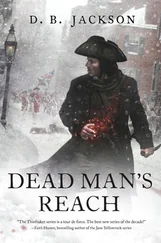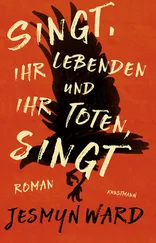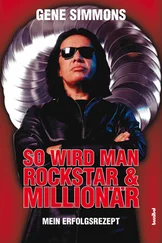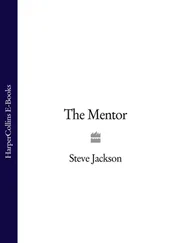DeLisle and Pass Christian, the two towns where all of my family hails from, are not New Orleans. Pass Christian squats beside the man-made beach of the Gulf of Mexico alongside Long Beach, the Bay of St. Louis at its back, while DeLisle hugs the back of the Bay of St. Louis before spreading away and thinning further upcountry. The streets of both towns are sleepy through much of the barely bearable summer, and through much of the winter, when temperatures hover near freezing. In DeLisle during the summers, there are sometimes crowds on Sundays at the county park because younger people come out to play basketball and play music from their cars. In the spring, the older people gather at the local baseball field, where Negro leagues from throughout the South come to play. On Halloween, children still walk or ride on the backs of pickup trucks through the neighborhood from house to house to trick-or-treat. On All Saints Day, families gather around loved ones’ graves, bring nylon and canvas folding chairs to sit in after they’ve cleaned headstones and sandy plots, arranged potted mums, and shared food. They talk into the evening, burn fires, wave away the last of the fall gnats. This is not a murder capital.
Most of the Black families in DeLisle have lived there as far back as they can remember, including mine, in houses many of them built themselves. These houses, small shotguns and A-frames, were built in waves, the oldest in the thirties by our great-grandparents, the next in the fifties by our grandparents, the next in the seventies and eighties by our parents, who used contractors. These modest houses, ours included, had two to three bedrooms with gravel and dirt driveways and rabbit hutches and scupadine vineyards in the back. Poor and working-class, but proud. There is no public housing at all in DeLisle, and the project housing that existed before Hurricane Katrina in Pass Christian consisted of several small redbrick duplexes and a few subdivisions with single-family homes, which housed some Black people, some Vietnamese. Now, seven years after Katrina, developers build two- and three-bedroom houses up on fifteen- to twenty-foot stilts where this public housing stood, and these houses fill quickly with those still displaced from the storm, or young adults from Pass Christian and DeLisle who want to live in their hometown. Hurricane Katrina made that impossible for several years, since it razed most of the housing in Pass Christian, and decimated what was closest to the bayou in DeLisle. Coming home to DeLisle as an adult has been harder for this reason, a concrete one. And then there are abstract reasons, too.
As Joshua said when we were kids hunting down ghosts: Somebody died here .
From 2000 to 2004, five Black young men I grew up with died, all violently, in seemingly unrelated deaths. The first was my brother, Joshua, in October 2000. The second was Ronald in December 2002. The third was C. J. in January 2004. The fourth was Demond in February 2004. The last was Roger in June 2004. That’s a brutal list, in its immediacy and its relentlessness, and it’s a list that silences people. It silenced me for a long time. To say this is difficult is understatement; telling this story is the hardest thing I’ve ever done. But my ghosts were once people, and I cannot forget that. I cannot forget that when I am walking the streets of DeLisle, streets that seem even barer since Katrina. Streets that seem even more empty since all these deaths, where instead of hearing my friends or my brother playing music from their cars at the county park, the only sound I hear is a tortured parrot that one of my cousins owns, a parrot that screams so loudly it sounds through the neighborhood, a scream like a wounded child, from a cage so small the parrot’s crest barely clears the top of the cage while its tail brushes the bottom. Sometimes when that parrot screams, sounding its rage and grief, I wonder at my neighborhood’s silence. I wonder why silence is the sound of our subsumed rage, our accumulated grief. I decide this is not right, that I must give voice to this story.
I’m telling you: there’s a ghost in here , Joshua said.
Because this is my story just as it is the story of those lost young men, and because this is my family’s story just as it is my community’s story, it is not straightforward. To tell it, I must tell the story of my town, and the history of my community. And then I must revisit each of the five young black men who died: follow them backward in time, from Rog’s death to Demond’s death to C. J.’s death to Ronald’s death to my brother’s death. At the same time, I must tell this story forward through time, so between those chapters where my friends and my brother live and speak and breathe again for a few paltry pages, I must write about my family and how I grew up. My hope is that learning something about our lives and the lives of the people in my community will mean that when I get to the heart, when my marches forward through the past and backward from the present meet in the middle with my brother’s death, I’ll understand a bit better why this epidemic happened, about how the history of racism and economic inequality and lapsed public and personal responsibility festered and turned sour and spread here. Hopefully, I’ll understand why my brother died while I live, and why I’ve been saddled with this rotten fucking story.
We Are in Wolf Town. Distant Past–1977
In pictures, some of my ancestors on my mother’s and my father’s sides are so light-skinned as to look white, and some are so dark the lines of the nose, a mouth, look silver in the black and white picture. They wear long-sleeved, full white shirts tucked into dark skirts, and muted cotton shirts tucked into loose pants. Inevitably, they stand outside in these pictures, but the backgrounds are so faded, one can only see trees like smoke behind them. None of them smile. My grandmother Dorothy tells me stories about them, says some of them were Haitian, that others were Choctaw, said they spoke French, that they came from New Orleans or a nebulous elsewhere, searching for land and space, and they stopped here.
Before DeLisle was named DeLisle, after a French settler, the early settlers called it Wolf Town. Pine and oak and sweetgum grow in tangles from the north down to the south of the town, to the DeLisle Bayou. The Wolf River, brown and lazy, snakes its way through DeLisle, fingers the country in creeks, before emptying into the bayou. When people ask me about my hometown, I tell them it was called after a wolf before it was partially tamed and settled. I want to impart something of its wild roots, its early savagery. Calling it Wolf Town hints at the wildness at the heart of it.
I want to tell them, but don’t: I’ve seen foxes, small and red and thin-boned, darting along ditches before slipping into woods again. This thing that I saw once was different. It was night, and my friends and I were riding through a part of DeLisle that had been previously untouched, a wild tangle of wood that someone had cut a dead-end road into in hopes of building a subdivision. The creature loped out of the woods before us, and we startled and shouted, and it looked at us and loped back into the darkness, and it was darkness, colored black, and had a long, fine snout, and it was soundless, this wild thing that looked at us like the intruders that we were before we drove away from it to more well-traveled roads, away from that place that was everything but dead end, that place that seemed all beginning, a birthplace: Wolf Town .
But I am not that eloquent, so I shut my mouth and smile.
Most of the people here are kin. It is something that the “Black” people will talk about among themselves, the way our families intertwine and feed one another, and it is something that “White” people will speak about among themselves, but it is something that we rarely speak to each other about, even when those on both sides of the color divide share the same last name. We are conscious of the way bloodlines are so entangled in our community, so much so that back in the early 1900s, adults in DeLisle would arrange visits with other communites of mixed-race people in Alabama or Louisiana to match children with marriageable mates to vary the gene pool. Sometimes this worked, and sometimes it didn’t. Sometime the matches the young found were closer to home. Sometimes they were cousins, or in other ways had relationships that were taboo.
Читать дальше
